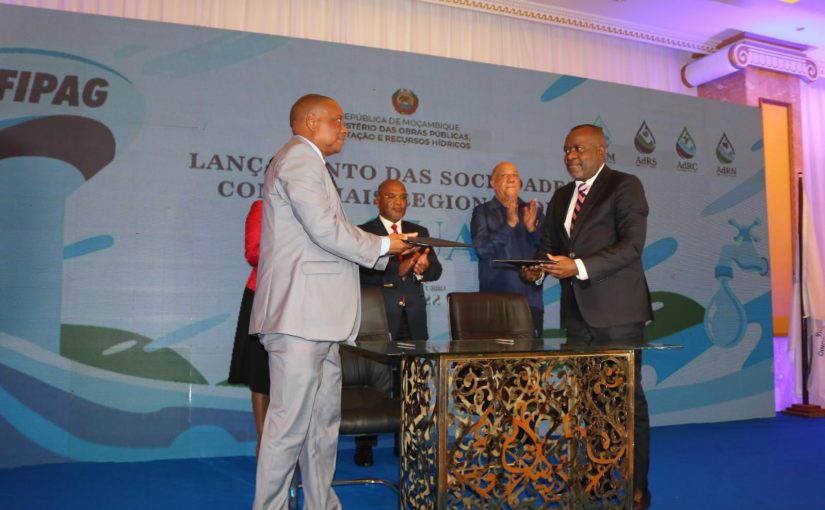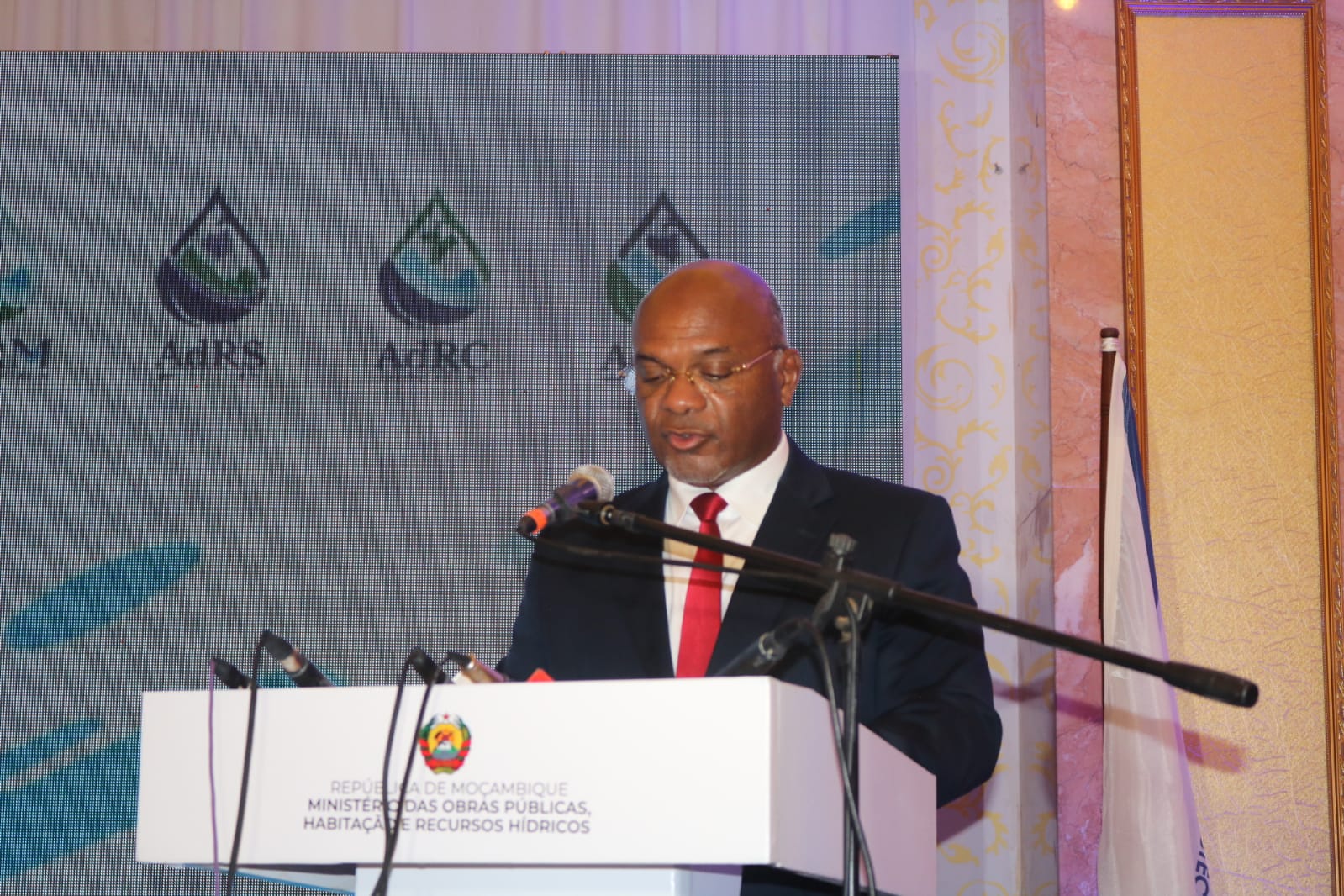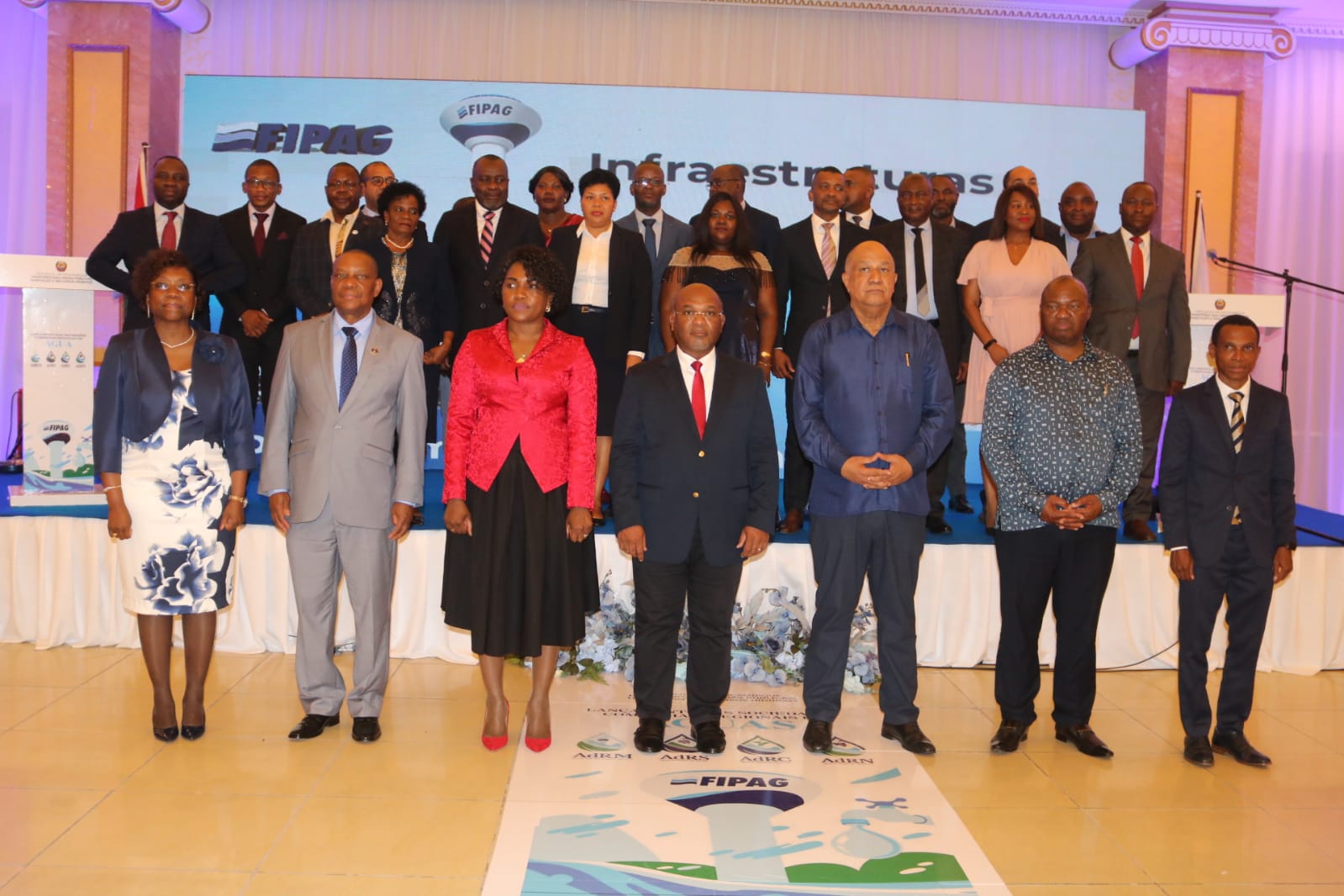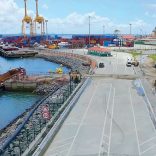Mozambique: Government publishes Maputo port concession contract, more to come
Mozambique: Beira hosts launch of Regional Commercial Water Companies

Photo: Ministério das Obras Públicas, Habitação e Recursos Hídricos-MOPHRH
The Ministry of Public Works, Housing and Water Resources launched, on Wednesday, October 26, in the city of Beira, Sofala province, the commercial companies Águas da Região do Norte, Águas da Região do Centro and Águas da Região do Sul, in an act presided over by the minister of the sector, Carlos Mesquita.
These are entities created with a view to improving the quality and efficiency of services and providing an opportunity for the private sector to get involved in water supply in the country.
On the occasion, Carlos Mesquita explained that the creation of these companies signals profound changes on the side of the Fund for Investment and Assets of Water Supply (FIPAG), which must carry out internal reform in order to adapt to the new functions, given that it will cease to directly manage the water supply systems.
The minister recalled that, in the history of the country, water supply to urban areas was originally carried out through municipal water and electricity services and, after national independence, due to the degradation of services provided, the state intervened and created state-owned companies.
The first generation of delegated management, as he pointed out, began in 1998, with the creation of FIPAG, whose main function is to manage the heritage and the public investment programme in water supply systems, and which initially began with the integration of the five major urban centres, namely Maputo, Beira, Quelimane, Nampula and Pemba. Gradually, more systems were introduced, and today FIPAG is responsible for 23 systems.
With the aim of deepening this management model, in 2021 four regional water companies were created, namely Águas da Região Norte, Águas da Região Centro, Águas da Região Sul and Águas da Região Metropolitana de Maputo, the beginning of the second generation of the Delegated Management Framework, introducing a greater separation of functions between operations and investments.
“In this regard, when we talk about the separation of functions, we are saying that FIPAG will focus its role on mobilising investment, implementing projects and supervising operators,” Mesquita said, adding that regional water companies will have their share of action. focused on the use of systems, with a view to improving services through delegated management contracts.
“This arrangement has been implemented in the Maputo system since 1999 and, with this reform, we will be able to capitalise on the lessons learned and make the institutional framework more robust and reliable,” the minister said.
According to the minister, this reform is fundamental for the introduction of entrepreneurial spirit into the system in line with the best international practices in water supply, and is expected to lead to an improvement in the provision of the service and in the attraction of financing for the expansion of the systems, with a view to achieving universal coverage, which is one of the government’s goals.
To mark the operationalization of the regional water companies, the general director of FIPAG, Victor Tauacale, signed delegated management contracts with the companies’ CEOs.
The contracts establish the obligations of the parties, where the operators will service the debt of the investments that FIPAG will make in water supply infrastructure while ensuring continuity of service, operational efficiency and ensuring that the government’s goals are met, both those in its programmes and the sustainable development goals regarding universal access by 2030.
The launch ceremony of the regional commercial water companies was also attended by Stella Pinto Zeca, Secretary of State for the Province of Sofala and Lourenço Ferreira Bulha, Governor of the Province of Sofala.














Leave a Reply
Be the First to Comment!
You must be logged in to post a comment.
You must be logged in to post a comment.